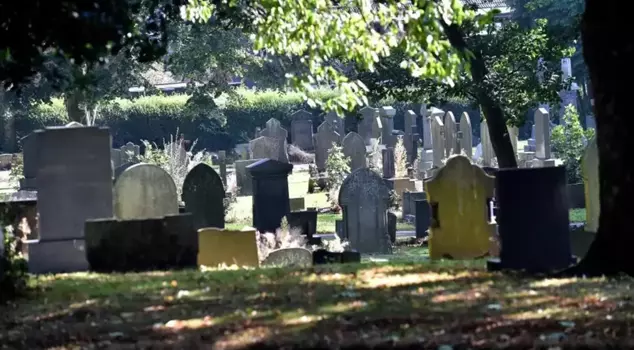
18.12.2024 14:21
Mass graves containing hundreds of babies and children have been found at Royton Cemetery in Oldham, Manchester. The first grave stretches along the southeast wall of the cemetery and contains the remains of 145 babies, 128 children, and 29 adults. Now, a second grave has been identified along the north wall of the cemetery.
A new mass baby grave has been uncovered right next to the site where nearly 300 baby remains were found in England.
In September, mass graves containing hundreds of babies and children were discovered at Royton Cemetery in Oldham, Manchester.
The first grave found stretches along the southeast wall of the cemetery and contained the bodies of 145 babies, 128 children, and 29 adults.
Now, a second grave has been identified behind the chapel building, on the north wall of the area.
According to Oldham Council, the number of individuals buried in this area, which will be marked with a permanent memorial like the other graves, has not yet been confirmed.
Last night, a candlelit vigil was held to commemorate those resting in the graves, attended by affected families and other members of the community.
The newly identified grave was marked with flowers and candles by family members and Councillor Maggie Hurley.
These graves were created as part of a common practice where stillborn babies were taken from their mothers, said to be buried in the grave of a "good person." However, the babies were buried in unmarked mass graves in cardboard boxes.
According to the charity Sands, which deals with stillbirth and neonatal deaths, families of stillborn or babies who died shortly after birth were not consulted about funeral arrangements until the mid-1980s.
The organization stated, "Until then, parents were often not involved in the process, and most were not told what happened to their baby's body."
The first grave was discovered by a woman searching for her siblings, one stillborn and the other who died five hours after birth in 1962.
According to Councillors Maggie Hurley and Jade Hughes, 146 of the remains found belonged to stillborn babies, while 128 belonged to infants and young children.
The councillors stated, "It is a great injustice to deprive parents of the fundamental right to bury their babies. This should awaken a sense of justice and empathy in all of us."
Officials noted that the woman who found the grave was "overcome with tears" after the discovery and felt a "deep sense of loss and injustice," stating that she needed emotional and practical support to cope with this trauma.